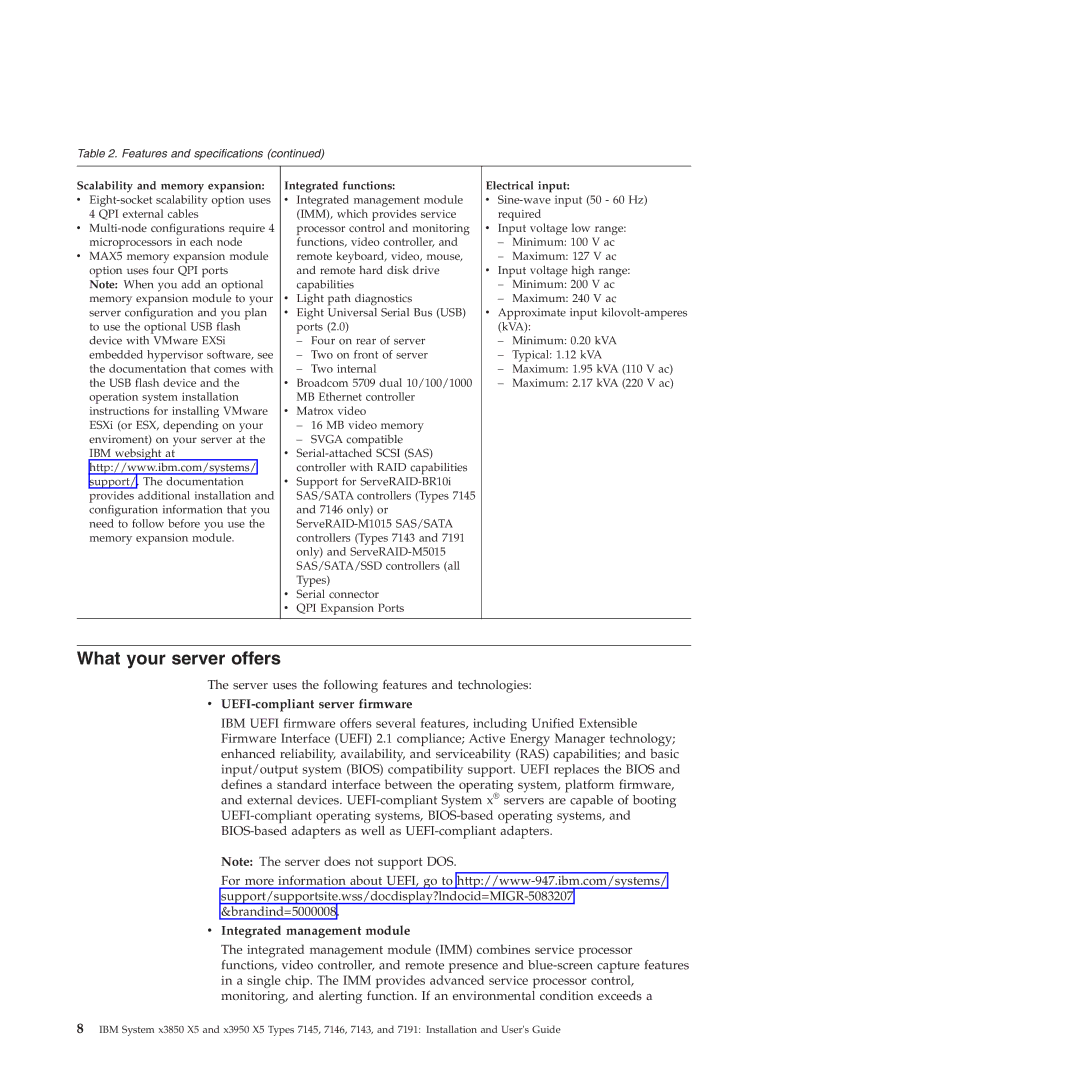
Table 2. Features and specifications (continued)
Scalability and memory expansion:
v
v
vMAX5 memory expansion module option uses four QPI ports Note: When you add an optional memory expansion module to your server configuration and you plan to use the optional USB flash device with VMware EXSi embedded hypervisor software, see the documentation that comes with the USB flash device and the operation system installation instructions for installing VMware ESXi (or ESX, depending on your enviroment) on your server at the IBM websight at http://www.ibm.com/systems/ support/. The documentation provides additional installation and configuration information that you need to follow before you use the memory expansion module.
Integrated functions:
vIntegrated management module (IMM), which provides service processor control and monitoring functions, video controller, and remote keyboard, video, mouse, and remote hard disk drive capabilities
vLight path diagnostics
vEight Universal Serial Bus (USB) ports (2.0)
–Four on rear of server
–Two on front of server
–Two internal
vBroadcom 5709 dual 10/100/1000 MB Ethernet controller
vMatrox video
–16 MB video memory
–SVGA compatible
v
vSupport for
vSerial connector
vQPI Expansion Ports
Electrical input:
v
vInput voltage low range:
–Minimum: 100 V ac
–Maximum: 127 V ac
vInput voltage high range:
–Minimum: 200 V ac
–Maximum: 240 V ac
vApproximate input
–Minimum: 0.20 kVA
–Typical: 1.12 kVA
–Maximum: 1.95 kVA (110 V ac)
–Maximum: 2.17 kVA (220 V ac)
What your server offers
The server uses the following features and technologies:
vUEFI-compliant server firmware
IBM UEFI firmware offers several features, including Unified Extensible Firmware Interface (UEFI) 2.1 compliance; Active Energy Manager technology; enhanced reliability, availability, and serviceability (RAS) capabilities; and basic input/output system (BIOS) compatibility support. UEFI replaces the BIOS and
defines a standard interface between the operating system, platform firmware, and external devices.
Note: The server does not support DOS.
For more information about UEFI, go to
vIntegrated management module
The integrated management module (IMM) combines service processor functions, video controller, and remote presence and
8IBM System x3850 X5 and x3950 X5 Types 7145, 7146, 7143, and 7191: Installation and User's Guide
